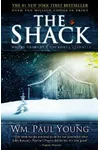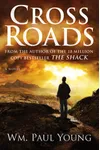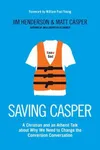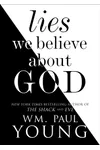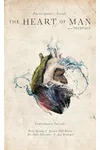Picture a Canadian storyteller who spun a tale so captivating it sold millions, all from a tiny self-published spark—meet William P. Young! Best known for his Christian fiction phenomenon The Shack, Young’s novels weave raw emotion, bold theology, and a touch of the unexpected, inviting readers to rethink faith and humanity.
Born in 1955, Young’s life is as layered as his stories. From jungles to best-seller lists, his journey is one of resilience, creativity, and a knack for challenging the status quo. Let’s dive into the world of this unique novelist whose words have touched millions.
The Making of William P. Young
William Paul Young was born on May 11, 1955, in Grande Prairie, Alberta, Canada, but his childhood was far from ordinary. Raised by missionary parents among the Dani people in the highlands of Netherlands New Guinea (now West Papua), Young was immersed in a stone-age culture, becoming the first white child to speak their language. This deep cultural connection shaped his worldview, though his early years were also marked by hardship, including being sent to boarding school at age six and surviving childhood sexual abuse. These experiences fueled his introspective nature and later writing. After returning to Canada, Young attended Bible college, earned a BA in Religion from Warner Pacific College, and juggled various jobs—radio DJ, construction, insurance—to support his wife, Kim, and their six children.
William P. Young’s Unforgettable Stories
Young’s writing career began not with ambition but as a gift for his kids. Urged by his wife to pen his perspectives on God and healing, he wrote The Shack in 2007, initially printing just 15 copies. After 26 publishers rejected it, Young and friends launched Windblown Media, spending a mere C$200 on advertising. Word-of-mouth propelled The Shack to the top of the New York Times best-seller list, selling over 25 million copies. The novel follows Mack, a grieving father, who encounters God in unconventional forms, sparking debates for its bold portrayal of the Trinity.
Young followed with Cross Roads (2012), a redemption tale about a coma-bound businessman meeting Jesus and the Holy Spirit in a surreal soul-landscape. Eve (2015) reimagines the Genesis story, challenging gender narratives by suggesting Adam, not Eve, triggered the Fall. His non-fiction work, Lies We Believe About God (2017), tackles theological misconceptions. Young’s style blends emotional depth, imaginative theology, and accessible prose, often stirring controversy for its unorthodox takes but resonating with readers seeking fresh spiritual perspectives.
Why William P. Young Matters
Young’s impact on Christian fiction is undeniable. The Shack alone has been compared to Pilgrim’s Progress for its cultural reach, inspiring a 2017 film starring Octavia Spencer. His works challenge rigid religious doctrines, offering a relational, love-centered view of God that resonates with those disillusioned by traditional faith. Despite criticism from some theologians for alleged heresy, Young’s novels have empowered readers to confront personal pain and rethink spirituality. His background as a Third Culture Kid and survivor infuses his stories with authenticity, making him a beacon for those navigating loss or questioning faith.
- Born: May 11, 1955, Grande Prairie, Alberta, Canada
- Key Works: The Shack (2007), Cross Roads (2012), Eve (2015), Lies We Believe About God (2017)
- Notable Achievement: The Shack sold over 25 million copies and won the Diamond Award for 10 million sales
Snag The Shack or Eve and dive into William P. Young’s thought-provoking Christian fiction! His stories might just spark a new way of seeing faith, love, and the world around you.
